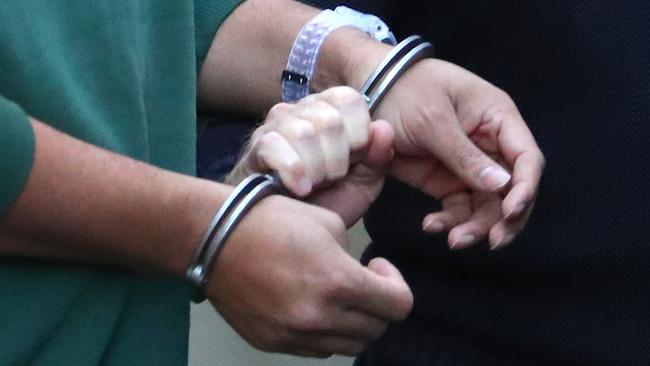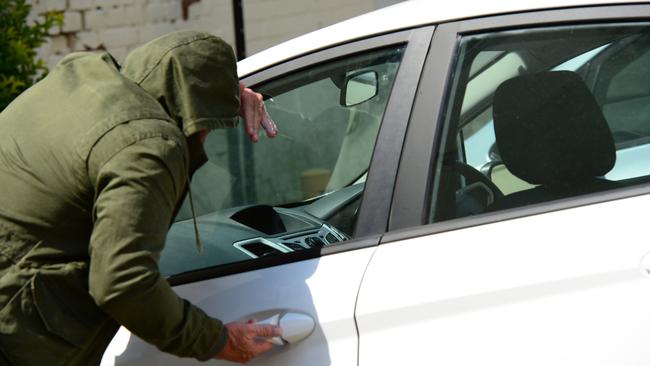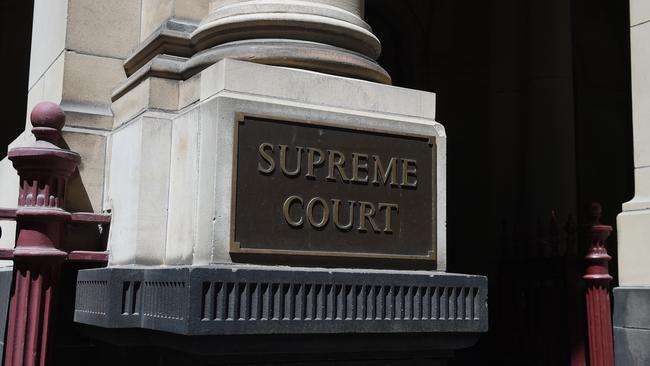Mooroolbark carjacker Heba Teryaki has jail sentence reduced by Supreme Court
A young carjacker whose “highly disruptive” behaviour in jail led to a staff burnout has had her prison sentence reduced, despite her criminal history and likelihood of reoffending. Her case has revealed an “urgent” problem with the jail system.

Outer East
Don't miss out on the headlines from Outer East. Followed categories will be added to My News.
A young Mooroolbark carjacker whose “almost unmanageable” behaviour in jail led to a staff burnout has had her prison sentence reduced, despite her criminal history and likelihood of reoffending.
Judge Mark Weinberg said the Supreme Court was faced with “an intractable sentencing problem” when reviewing Heba Teryaki’s incarceration, with intensive therapeutic treatment in secure institutions only on offer to male offenders.
The Court of Appeal heard Teryaki was in an “deplorable situation” in jail when her lawyers applied to have her three-year prison sentence reduced.
MORE: DOCTOR SUSPENDED INDEFINITELY AFTER RAPE COMMENTS
SEXUAL ABUSER JAILED FOR 18 MONTHS
CHILDCARE CENTRE IN CLEAR AFTER FIRING WORKER OVER FIGHT THREAT
Teryaki was given the sentence in the County Court in November for aggravated carjacking, theft, attempted carjacking and attempted aggravated carjacking offences she committed as a 22-year-old in Mooroolbark in July 2017.

At her appeal on June 3, the court heard during the 20 months Teryaki had been in a psychiatric unit at Dame Phyllis Frost Centre she had “self-harmed or attempted suicide on no fewer that 131 occasions”.
The court heard she had been “highly disruptive” and constantly subject to a ‘handcuff regime’ because she had repeatedly assaulted staff and other inmates.
“She was said to have caused what was described as ‘staff burnout’,” Judge Weinberg said.
“As a consequence of the complex combination of her very low level of intellectual function and her borderline personality disorder, she has proved to be almost unmanageable.”

“No one seems able to come up with a practical solution of how to deal with her, apart from keeping her effectively isolated, and under the most stringent conditions of incarceration imaginable.”
Judge Weinberg noted when a judge originally sentenced Teryaki for the offences she had tried to place the offender in the Disability Forensic Assessment and Treatment Service, but had learnt the service was only available to male offenders.
After hearing accounts of Teryaki having to be isolated and handcuffed in prison, Judge Weinberg and Judge Stephen William Kaye found her undertaking the full three-year prison term could “seriously and adversely impact her mental health” and rehabilitation prospects.
But they found Teryaki, who had an “appalling criminal history” prior to her latest offences, which were committed three days after she was let out of custody, would not be able to comply with a Community Corrections Order.
Judge Weinberg told the court “all that could be done, in the interests of her, and the interest of the community would be to reduce the three-year term … in the hope that upon release, some form of therapeutic treatment could be found that might alleviate her difficulties and better protect the community,” he said.
“The position we have arrived at is far from ideal.”
Teryaki’s sentence was reduced to two years and three months in jail.
He noted the judge who originally sentenced Teryaki “had little choice”, and the court was “in no way critical” of the decision on the such a difficult matter.
“The sad thing is that there is no proper facility available for dealing with someone in the applicant’s situation, and that situation urgently needs to be remedied.”
The court heard a new disability-specific unit the Rosewood Unit had been opened at Dame Phyllis Frost Centre where Teryaki had been relocated since the appeal hearing on May 21.
Judge Weinberg said it provided a “modest improvement” with “no handcuff regime”.


